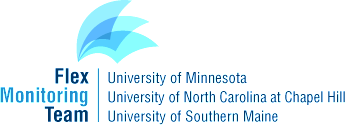A team of 53 epidemiologists, pharmacologists, virologists, immunologists and policy experts published a 136-page report on the heels of the new COVID-19 preparedness plan released by the White House. Their plan shares similarities with that from the Biden administration but also differences, such as broadening the nation’s response to include all major respiratory viruses.
The group behind “A Roadmap for Living with COVID” is led by Ezekiel Emanuel, MD, PhD, vice provost for global initiatives at the University of Pennsylvania in Philadelphia and former advisory board member of the now-dissolved COVID-19 panel that guided President Joe Biden’s transition into office. The group includes former officials from both Republican and Democratic administrations. Find the complete listing of authors, contributors and reviewers here.
“The shift to the next normal should not induce complacency, inaction or premature triumphalism,” the authors note in their executive summary, which does not mention the Biden administration’s March 2 COVID-19 preparedness plan by name.
The roadmap is centered upon 12 calls to action:
1. Expand the focus of U.S. preparedness and response from COVID-19 to major respiratory viruses, including flu and RSV infection, with the interim goal to reduce annual deaths below the worst influenza season of the last decade.
2. Create, maintain and disseminate a transparent infectious disease dashboard to guide the public and policymakers at national, state and local levels on the introduction, modification and lifting of public health measures.
3. Strengthen testing, surveillance and data infrastructure. This includes production capacity for 1 billion at-home rapid tests per month, test-to-treat infrastructure that links testing to medical consults and treatment, and the establishment of infrastructure to rapidly collect and analyze data on population immunity.
4. Regulate the improvement and monitoring of indoor air quality. The group calls for the administration to direct the Environmental Protection Agency and Occupational Safety and Health Administration to create standards that protect workers from inhalation exposure.
5. Direct and fund HHS, including the NIH and FDA, to accelerate the development of new, more effective therapeutics, particularly multi-drug oral antivirals and next-generation vaccines that offer better, broader and longer-lasting protection. The authors want the administration to direct and fund HHS to achieve a vaccination rate of at least 85 percent by the end of 2022, which would include CMS reimbursing clinicians for discussing vaccinations with patients who are insured by Medicare and Medicare.
6. Shift the goal of U.S. contributions to the global vaccination effort from stopping infections through population vaccination coverage alone to improving the distribution and administration infrastructure necessary to fully vaccinate the most vulnerable.
7. Strengthen research on long COVID-19. The authors urge for coordinated and expanded research to answer questions on its frequency, risk factors, prognosis and benefits of vaccines and therapies for long COVID-19 within the next year, along with support for individuals experiencing the condition.
8. Create a permanent cadre of community health workers who will support populations highly susceptible to adverse outcomes from respiratory viruses.
9. Expand and support the healthcare workforce. Calls to action include greater pay, health benefits, tuition assistance, loan forgiveness and safe working conditions for workers. The group wants industrywide incentives to accelerate the adoption of automation for routine paperwork and chores, and the extension and expansion of temporary regulatory flexibilities that allowed healthcare organizations to operate telehealth and hospital-at-home programs throughout the pandemic.
10. Create a new post to fight biosecurity pandemic threats. The yet-to-be post, deputy assistant to the president for national security affairs and biosecurity, would sit within the National Security Council and be responsible for the preparation and response to any biosecurity and pandemic threats, including foreign and domestic sources of anti-science misinformation.
11. Redesign U.S. public health communications to regain public trust in a fast-moving, deeply polarized environment to promote the best health outcomes for Americans. The proposed redesign includes the creation of a Joint Information and Communication Center to oversee the sharing of infectious disease data, and infrastructure for dissemination of public health messages.
12. Roll out policies and programs to enable schools and child care facilities to remain open and safe for in-person learning and care without need for special public health mitigation measures. These measures include improved air filtration and expanded school nurse programs.
“Unfortunately, health crises in the United States are often followed by collective amnesia,” the authors contend, saying the roadmap is a plan for the United States to get to the next normal while building the systems and infrastructure needed to reduce risk of another pandemic and the consequences if one does occur.
Both “A Roadmap for Living with COVID” and the new COVID-19 preparedness plan released by the White House March 2 approach planning with a focus on living alongside the virus while continuing to combat it. The Biden administration’s 96-page plan is built around four goals: (1) protect against and treat COVID-19, (2) prepare for new variants, (3) prevent economic and educational shutdowns and (4) vaccinate the world. Read more about its contents here.






